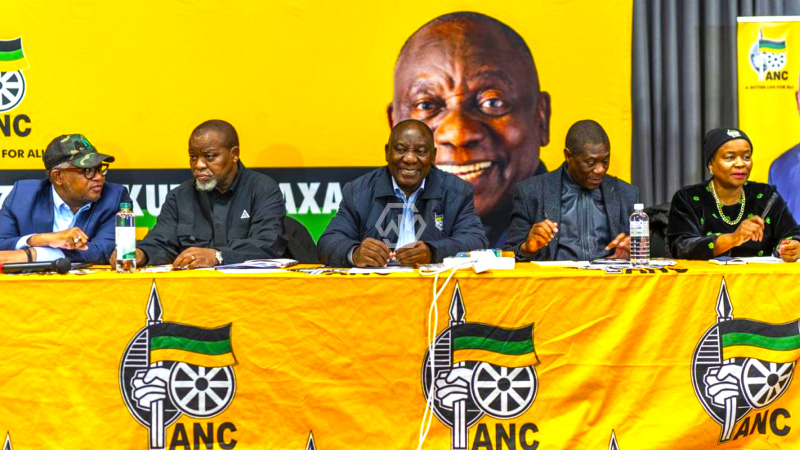- Historic Shift: ANC loses its 30-year majority, prompting urgent talks on forming a new government.
- Unity Government: ANC considers a government of national unity involving multiple parties, avoiding a direct coalition with the Democratic Alliance.
- Leadership in Balance: Ramaphosa’s reelection hinges on securing broader political support amid internal and external opposition.
South African President Cyril Ramaphosa is engaged in critical discussions with senior officials of the African National Congress (ANC) to navigate the party’s unprecedented loss of its parliamentary majority.
The outcome of these talks will determine whether Ramaphosa secures a second term as president. With the ANC having won only 40% of the vote, forming a stable government requires broader political alliances.
ANC leaders weigh coalition options after election loss
South African President Cyril Ramaphosa is in crucial talks with senior ANC officials following the party’s loss of its parliamentary majority for the first time in 30 years. The ANC’s National Executive Committee (NEC) is meeting to determine the best approach to forming a new government.
The ANC is leaning towards establishing a government of national unity, which would involve a broad agreement with multiple political parties rather than a direct coalition with the main opposition, the Democratic Alliance (DA). This proposal aims to include a wide range of political voices to ensure stability.
Ramaphosa’s bid for a second term as president is at stake, as the ANC needs support from other parties to reelect him. The recent elections saw the ANC secure only 40% of the vote, necessitating alliances to govern effectively and keep Ramaphosa in office.
Time is of the essence, with the newly elected Parliament set to convene by June 16 to elect a president. The NEC’s decision will play a critical role in shaping South Africa’s political landscape and determining whether the ANC can maintain its leadership through broader collaboration.
The ANC’s decision in the coming days will be pivotal not only for Ramaphosa’s political future but also for South Africa’s stability and governance. As the nation watches closely, the potential for a government of national unity could reshape the political landscape, requiring unprecedented cooperation among diverse political factions to address the country’s pressing challenges.
“We want to bring everybody on board,” said ANC Secretary-General Fikile Mbalula, emphasizing the party’s inclination towards forming a government of national unity amid the post-election challenges.



